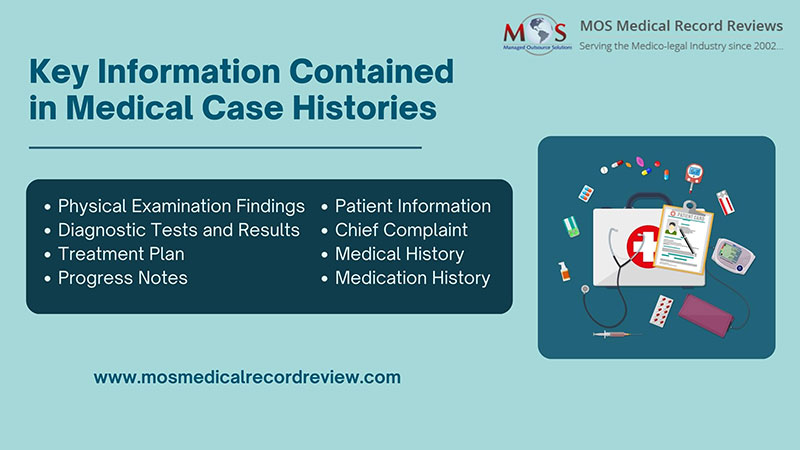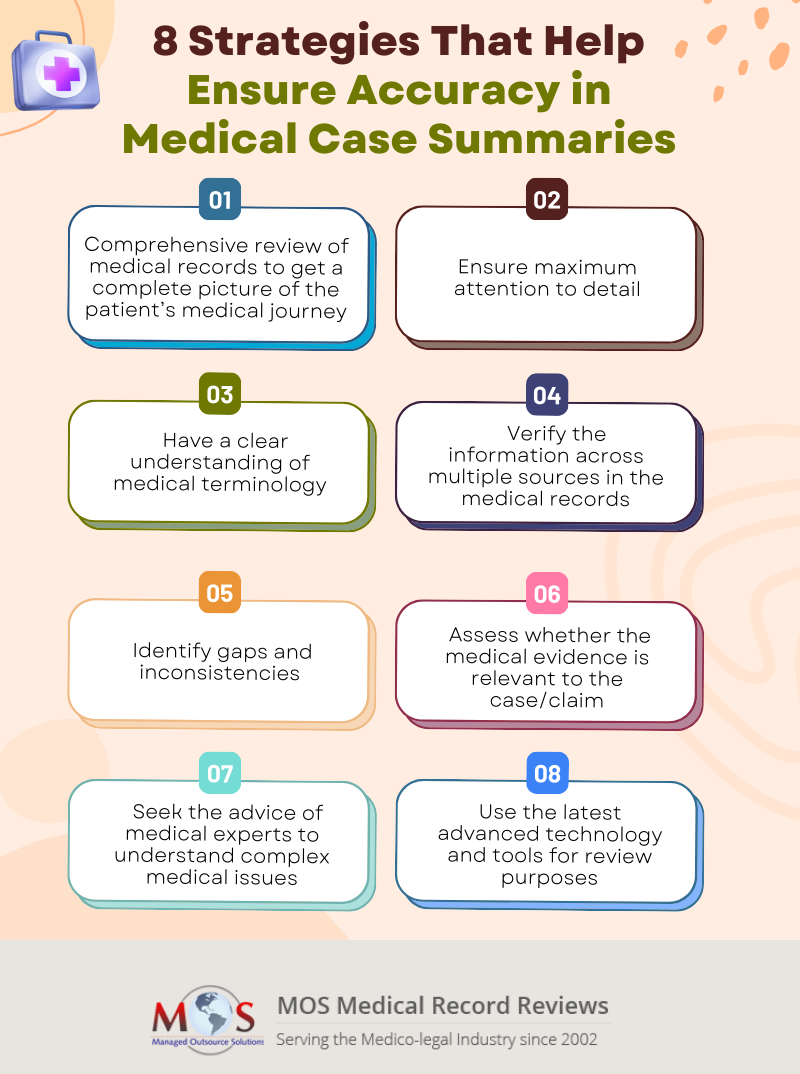A medical case history and summary typically includes comprehensive information about a patient’s health, medical conditions, treatments, and other relevant details. It is an important record for healthcare providers, ensuring continuity of care and aiding in informed decision-making. It also serves as an indispensable tool in legal cases, providing a comprehensive and chronological record of a patient’s health journey. In legal proceedings, this document plays a pivotal role in establishing facts, timelines, and causation. Particularly crucial in medical malpractice cases, these summaries help determine whether a healthcare provider adhered to the expected standards of care and whether any negligence on his/her part resulted in patient harm. The documentation is equally valuable in personal injury claims, disability cases, and insurance disputes, providing concrete evidence of the extent of injuries, impairments, and the impact on the individual’s life. To prepare concise medical case summaries, attorneys utilize the services of a medical review company.
MOS Medical Record Reviews provides value-added medical review services.

Key Components of a Medical Case History and Summary
Here are the key components typically found in a medical case history and summary:
Patient Information:
- Full name, date of birth, gender, and contact information
- Emergency contact details
- Insurance information
Chief Complaint
A concise statement outlining the primary reason for the patient’s visit or admission.
Medical History
- Overview of the patient’s past and current medical conditions
- Chronic illnesses, allergies, and previous surgeries
- Family medical history
Medication History
- List of current medications, including dosage and frequency
- Any history of medication allergies or adverse reactions
Social and Lifestyle History
- Patient’s occupation, living situation, and lifestyle factors
- Habits such as smoking, alcohol consumption, and recreational drug use
Review of Systems (ROS)
A systematic review of various organ systems to identify potential health issues not mentioned in the chief complaint.
Physical Examination Findings
Results of the patient’s physical examination, including vital signs and relevant clinical findings.
Diagnostic Tests and Results
- Summary of laboratory tests, imaging studies, and other diagnostic procedures
- Results of pathology reports
Treatment Plan
- Details of current and past treatments, including medications, surgeries, and therapies
- Responses to treatments and any complications
Progress Notes
- Chronological documentation of the patient’s progress during hospitalization or over a series of visits
- Changes in symptoms, adjustments to the treatment plan, and other notable events
A good medical summary will contain information such as Medicare/Medicaid or other insurance policy numbers. It will also contain details regarding any medical device the patient may be using, Living Will or Healthcare Directive, and medical power of attorney.
How a Medical Review Company Ensures Accuracy
Accuracy of the medical records is vital to ensure that the facts included in the case history and summary are reliable. Professional medical record review companies ensure accuracy by following the below-given strategies.
Attorneys handling medical-legal cases can partner with an experienced medical record review company for medical summaries expertly crafted in keeping with professional standards in the field. Given that medical record review is their primary responsibility, these service providers have the expertise to effectively summarize medical information by discerning the pertinent details for each case. This guarantees that the most relevant facts and statements in a client’s history are highlighted in the medical case summary.
Get expert medical record review assistance.





